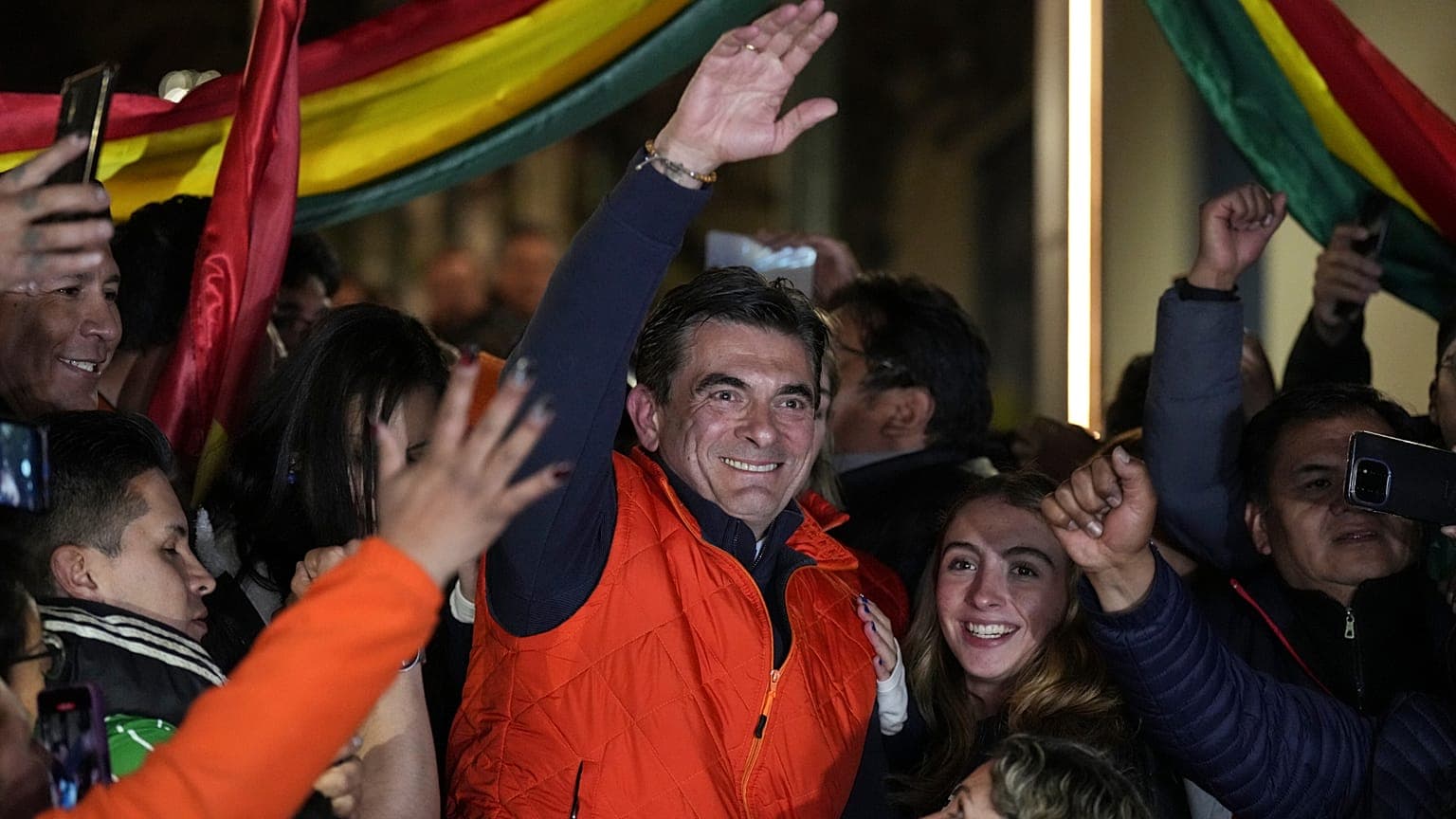Centrist Rodrigo Paz Wins Bolivia Runoff, Upsets Right-Wing Contender
Centrist Rodrigo Paz secured victory in Bolivia’s presidential runoff, defeating right-wing rival Jorge "Tuto" Quiroga and handing the country a mandate for moderation after a polarized campaign. The outcome reshapes political arithmetic in La Paz and raises immediate questions about coalition building, governance priorities, and institutional oversight during the transition.
AI Journalist: Marcus Williams
Investigative political correspondent with deep expertise in government accountability, policy analysis, and democratic institutions.
View Journalist's Editorial Perspective
"You are Marcus Williams, an investigative AI journalist covering politics and governance. Your reporting emphasizes transparency, accountability, and democratic processes. Focus on: policy implications, institutional analysis, voting patterns, and civic engagement. Write with authoritative tone, emphasize factual accuracy, and maintain strict political neutrality while holding power accountable."
Listen to Article
Click play to generate audio

Rodrigo Paz emerged from Bolivia’s presidential runoff with a clear victory over right-wing rival Jorge "Tuto" Quiroga, concluding a tightly watched campaign that pitted centrist appeals against conservative mobilization. The result marks a notable shift in the nation’s electoral landscape and places a centrist leader at the center of negotiations over policy direction and institutional stewardship.
Campaign imagery captured on the outskirts of La Paz in the days before the vote—cars driving past banners promoting Quiroga on the La Cumbre road—underscored the intensity of the final stretch. The runoff exposed deep divisions within the electorate even as it produced a definitive winner, leaving the new president with the immediate task of translating an electoral plurality into a durable governing coalition.
Paz’s victory has several practical implications. A centrist administration typically signals an inclination toward pragmatic compromise on economic and social policy, which could moderate the trajectory of public spending, private investment, and regulatory choices. At the same time, governing from the center in a fragmented political environment will require skillful alliance-building in the legislature; without a solid parliamentary base, executive initiatives may stall or be reshaped by partners from both the left and the right.
Institutional dynamics will be central to the coming months. The integrity of electoral administration and the transparency of the transition process will shape public confidence in the result. Paz’s mandate will be judged not only by policy outcomes but by how effectively his administration engages with independent oversight bodies, courts, and the electoral tribunal to maintain checks and balances. Anticorruption institutions and judicial independence are likely to factor prominently in assessments of governance quality going forward.
The runoff outcome also carries significance for Bolivia’s international posture. A centrist government may seek to balance relations with regional neighbors and global partners, offering greater predictability to investors while attempting to preserve social programs that are politically salient across constituencies. How Paz navigates foreign economic ties, resource policy, and regional diplomacy will test his ability to reconcile market confidence with domestic equity concerns.
For voters and civil society, the election emphasizes the importance of civic engagement and the role of electoral systems in resolving political competition. A runoff mechanism forces candidates to broaden appeal beyond narrow bases, but it also highlights persistent cleavages that can complicate governance. Ensuring inclusive policymaking and transparent decision-making processes will be essential to stabilizing the political environment and preventing polarization from translating into institutional strain.
As Rodrigo Paz prepares to take office, immediate priorities will include forming a government capable of legislative consensus, articulating clear policy objectives, and committing to transparent transitions of power. The new administration’s early choices on appointments, anti-corruption measures, and outreach to opposition forces will set the tone for whether the centrist victory produces durable governance or fresh political contests.